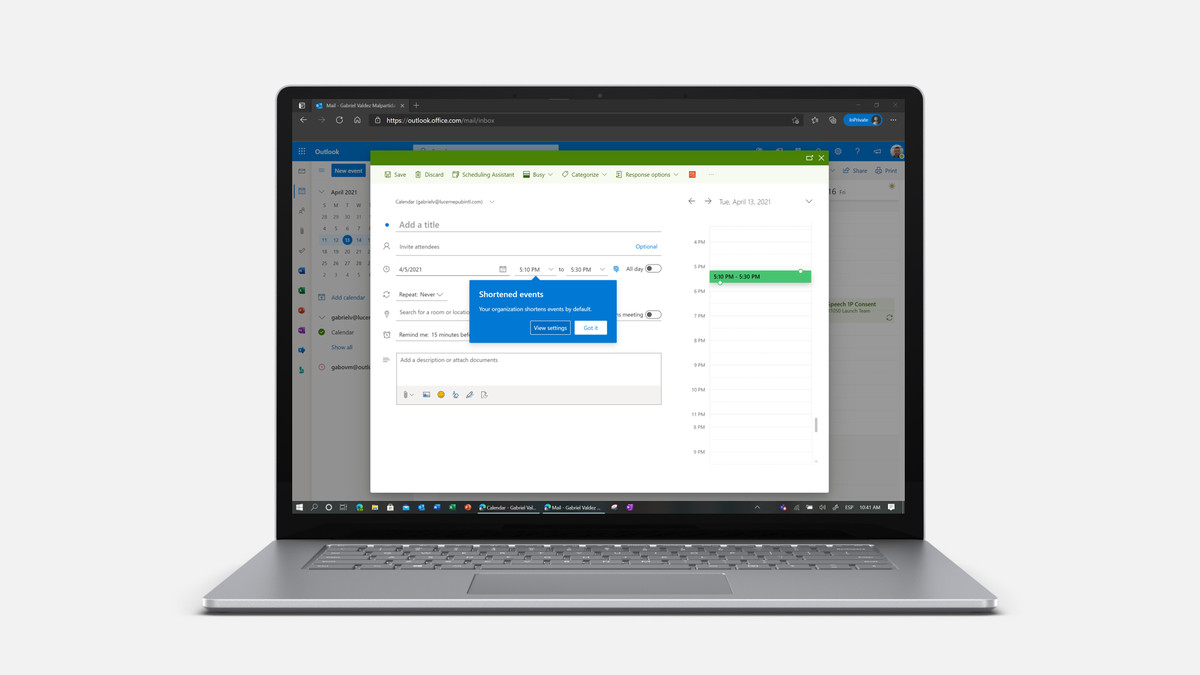Microsoft is updating Outlook to give companies the option to automatically start or end all meetings early to ensure employees have a break between back-to-backs. New settings in Outlook are rolling out to help reduce the digital overload of working remotely.
Companies can set their own scheduling defaults, and they’re fully customizable. That means you could have five minutes blocked off before or after a 30-minute meeting, or 10-15 minutes after hourlong meetings. Individuals can also set their own scheduling defaults, but the company-wide option is the significant change here.
Calendar software like Outlook has defaulted to on-the-hour meetings for decades, often inadvertently promoting the idea of back-to-back meetings with default settings that don’t consider the need for a break in between. If you create a new meeting in Outlook today it will default to on the hour and a 30-minute length. Even the drop-down menu doesn’t make it easy to select a custom time without manually entering it.
:no_upscale()/cdn.vox-cdn.com/uploads/chorus_asset/file/22456619/OWA_org_setting_in_device.png)
Microsoft is making these changes after carrying out its own research on digital overload, in response to the millions of people working from home during the pandemic. Video meetings have become a popular way for workers to communicate, but this change to the way we work has its drawbacks. “More remote work is challenging our wellbeing,” says Jared Spataro, corporate vice president of Microsoft 365. “Digital overload is real, and something has to change.”
Microsoft thinks this small change to Outlook could be a new way to think about meetings for many and promote wellbeing. Whether corporations enable this widely or if it even has an impact is another matter. Meetings often start late or run over because people are busy unmuting themselves or joining late because another meeting ran over its scheduled time slot. New Outlook settings won’t immediately improve that aspect of meetings, but it could plant a seed of change to help employers and employees think a little more about the impact of meetings and the need to give everyone’s brain a much-needed rest.
